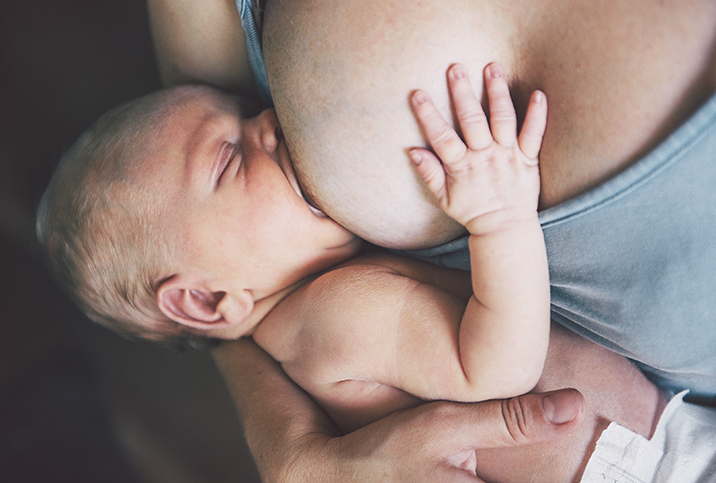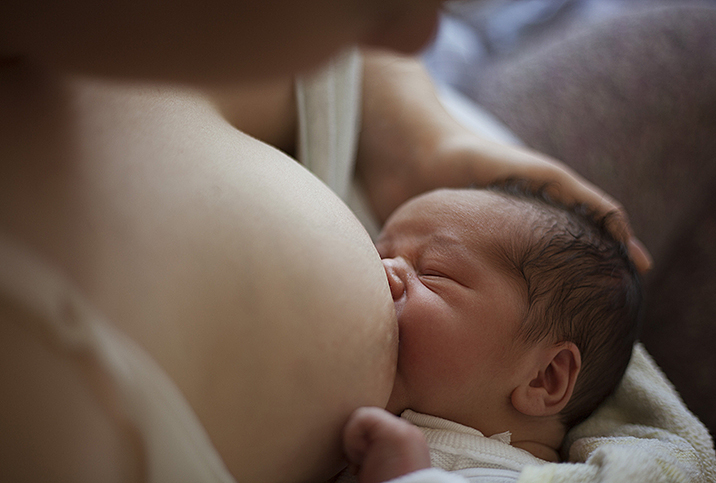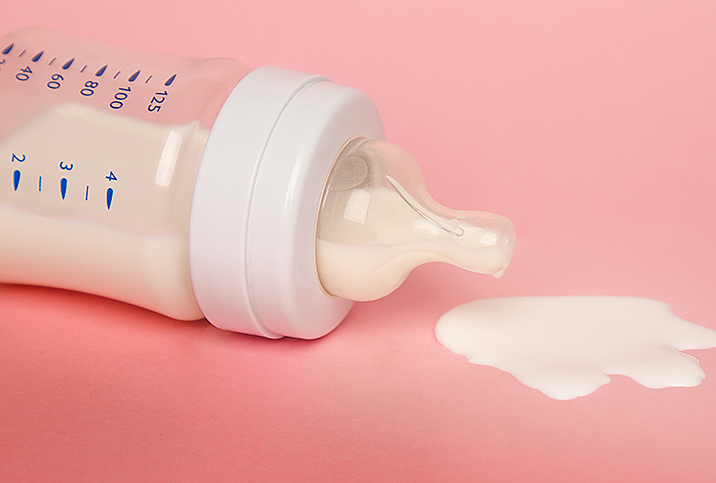Steps to Take When You Get Mastitis

Mastitis is a highly debilitating and painful breast condition that can make caring for your baby difficult. It presents as an inflammation of breast tissue, sometimes involving an infection, resulting in breast pain, swelling, warmth and redness. You may also get fever and chills.
Possible causes are a blocked milk duct or bacteria entering the breast, according to the Mayo Clinic.
Mastitis affects an estimated 20 percent of breastfeeding women, according to BMC Family Practice, and is typically treated using antibiotics. However, many cases of mastitis can be treated safely and effectively at home using natural treatments that pose fewer risks than prescribed medications.
Breastfeed frequently
Breastfeeding is probably the last task you want to do when you have mastitis, especially given how your baby's latch and feeding can cause excruciating pain. However, nursing your baby frequently from the affected breast can unclog your milk ducts and help you overcome mastitis. Plus, it helps to know that pain often goes away gradually each time you nurse when you have mastitis.
Take a hot shower
A hot shower can help soften the affected breast and make it easier for you to express milk when clogged ducts are present. If possible, adjust the setting on your showerhead to the most powerful jetstream and aim it at your breast, which will help loosen and open the clogged duct. A hot shower can also help you experience relief from other mastitis symptoms such as fever, chills and fatigue.
Massage your breast
Massaging the affected breast can help unclog your milk ducts, even if doing so produces more pain than pleasure. Locate any hard, lumpy areas in your breast, apply firm pressure to these areas using your thumb and push in the direction of your nipple. Try massaging your breast while nursing your baby, as their suckling may help with successfully unclogging the duct. You can also massage your breast while taking a shower to relieve pressure.
Use coconut oil on nipples
Coconut oil is a natural antibacterial agent that can help clear up bacterial infections such as those that cause mastitis. Rub coconut oil over any cracks on your nipples and apply it as often as needed to accelerate your healing. Coconut oil is also safe for your baby to ingest in small amounts when nursing—just make sure you monitor whether your baby shows any signs of sensitivity.
Drink plenty of water
Staying hydrated can help boost your milk supply and lead to more frequent feedings, allowing you to clear out your milk ducts more quickly. Drinking lots of water can also help replenish your fluids if you have a fever, plus it will flush out bacteria and other toxins that may be causing your infection. Keep a large glass of water nearby at all times and drink as much as possible to speed up healing and breastfeeding frequency.
Use a vibrator to unclog milk ducts
Though the idea may sound silly, it's possible your vibrator has the speed and power to unclog your milk ducts. If you have a vibrator, put it on the most powerful setting, gently press it against the hard spots in your affected breast, and move it back and forth repeatedly over these lumps to break them apart.
A vibrator is often highly effective at unclogging milk ducts. The lumps in your breast may not go away for several hours due to inflammation, but other symptoms such as breast soreness and fatigue may start fading before then. If you don't have a vibrator, try using an electric toothbrush, which may be equally effective.
When to see a doctor
Make an appointment to see your doctor if your mastitis and symptoms have not resolved within 24 hours of trying the above remedies. Mastitis that goes unresolved can develop into an abscess that must be drained by your doctor or could require surgery, reports the National Library of Medicine. You should also see your doctor if part of your breast tissue becomes reddened or hot, or if the lymph nodes in your armpit become swollen and tender to the touch.
After you recover from mastitis, consider working with a lactation consultant who can give you breastfeeding tips that can help you prevent mastitis in the future. This is especially important advice to follow if you're new to breastfeeding.
















